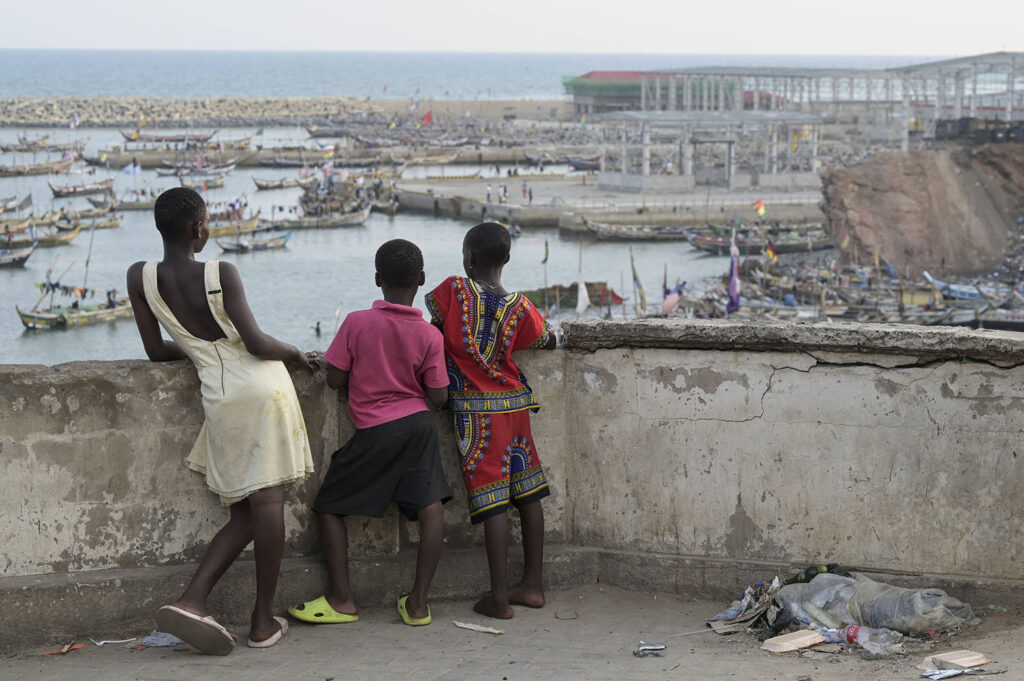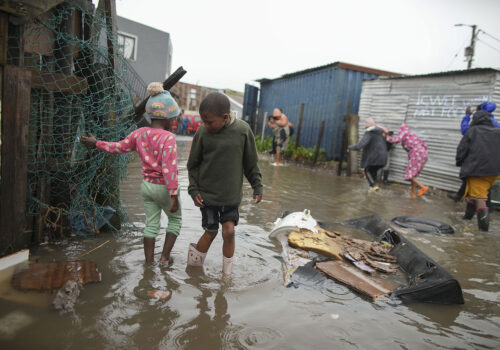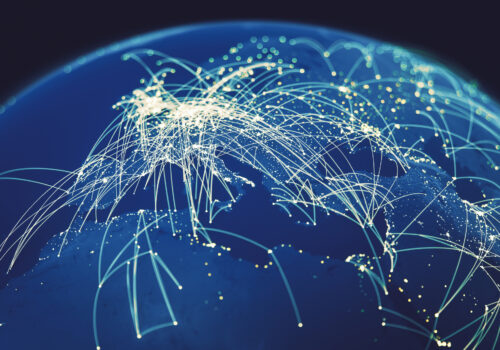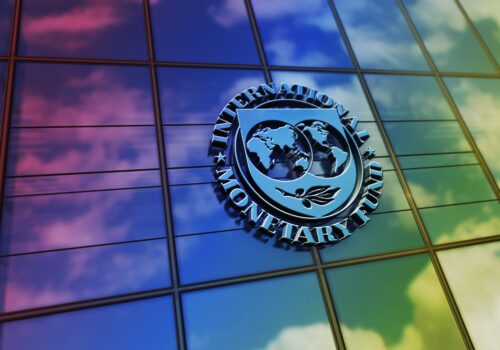The African continent is at a critical juncture. The International Monetary Fund (IMF) assesses that global sovereign debt will surpass $100 trillion this year, while S&P Global Ratings predicts that sovereign defaults will become more frequent over the next decade. Many of these debt-distressed countries will be in Africa—around twenty low-income countries in Africa are either bankrupt or at high risk of default.
Faced with rising macroeconomic pressures and the aftershocks of global crises, many nations are scrambling to stay afloat. Unsustainable debt has too often prevented my country—Ghana—from achieving its full potential. Recently, Ghana has successfully restructured thirteen billion dollars in international debt, offering important lessons for countries facing such issues and the wider international financial community.
Lessons for debtor countries
Successful debt restructuring cannot be achieved until a country puts its house in order. An IMF-supported reform agenda that stabilizes the economy and lays the foundation for sustainable, inclusive, and long-term growth is essential. In Ghana, this meant restructuring domestic debt, bringing inflation down, strengthening social safety nets, increasing the flexibility of exchange-rate policies, and tightening monetary policy. Ghana has also used this debt restructuring to refocus our medium-term policy vision on green investments and development projects that will help us meet our climate goals while driving sustainable growth and the creation of new, well-paying jobs for the Ghanaian people. This will ensure that Ghana not only leaves debt challenges behind for good but reemerges in international markets stronger.
Second, Ghana’s proactive approach to negotiating with the IMF, bondholders, and the official creditor committee allowed for swift progress under the Group of Twenty (G20) Common Framework. The negotiation took just two years, making it the fastest to date. We adapted to move at the speed of the market and aligned Ghana’s internal bureaucracies to respond to creditor feedback and proposals more quickly. The involvement of African advisers with a deep understanding of financial markets, local knowledge, and key stakeholders, as well as the ability to navigate Ghana’s bureaucracy, was essential in getting the deal across the finish line—an important lesson for other countries.
Lastly, countries must prioritize transparency to regain the trust of their creditors, investors, and international partners. In Ghana’s case, we committed to regular disclosures of the public debt portfolio, increased our surveillance on debt issuance by public entities, and are digitizing debt management to enhance transparency and efficiency. These are all policies that have been supported and recognized by the IMF. These reforms helped boost the confidence of our private and international partners and show that Ghana is planning for long-term fiscal stability and sustainable growth. Ghana’s priority now is ensuring we do not need a future restructuring, which would damage the market confidence we’ve worked hard to restore.
Lessons for the international financial community
Ghana’s case shows that the G20 Common Framework is working out its growing pains. The Common Framework has come a long way in improving coordination between traditional and nontraditional creditors and accelerating the pace of restructuring. However, the international financial community must continue to increase these coordination efforts to further improve the Common Framework’s speed and efficiency. Waiting two years to regain access to international markets may not seem long, but it still hampers economic progress. Swift, transparent, and fair processes in the international financial system benefit not only debtor countries but also the global economy.
Additionally, many African nations are actively reforming and building stable, growth-focused economies, but they are limited by international perceptions. While political and geopolitical dynamics naturally influence credit ratings, as recognized by the United Nations Development Programme, it is imperative that these standards are applied fairly and consistently. Credit agencies should ensure that they have sufficient on-the-ground resources to understand the complexity of the continent for their qualitative assessments of policies and geopolitical dynamics. The international financial community must reassess whether risk evaluations reflect today’s realities accurately or are influenced by misperceptions.
Ghana is a stable democracy and serves as an important trading partner on the global stage. Despite that, skewed risk perceptions continue to hinder access to capital, driving up interest payments and stifling development. These biases are costing Africa billions—funds that could be otherwise invested in infrastructure, healthcare, education, and economic growth.
The international financial community can foster a more equitable financial environment by working together to address these disparities. This will benefit African nations and, more importantly, contribute to a more robust and fair global economy. It is my hope that Ghana’s case can serve as a catalyst to continue accelerating the pace of restructurings and improving the international financial system so that it can be a driver of inclusive growth, poverty reduction, and global innovation.
Nana Addo Dankwa Akufo-Addo is the president of the Republic of Ghana.
Further reading
Wed, Oct 9, 2024
The days of multilateralism are not behind us
AfricaSource By
International cooperation is still possible through replenishing the International Development Association, Abdoul Salam Bello and Vel Gnanendran of the World Bank Group write.
Fri, Oct 18, 2024
The rising influence of geopolitics in economic crisis support
Econographics By
Newer insurance mechanisms such as bilateral swap lines and regional financing arrangements are increasingly being used as political footballs.
Fri, Oct 4, 2024
The IMF needs to find its geopolitical bearing
Econographics By Martin Mühleisen
Western delegates should think hard about how the financial and intellectual capital invested in the institutions can be put to better use in the interests of democracies around the world.
Image: A fishing port in Accra, including an old fishing port and a construction site of a new fishing harbor. IMAGO/Joerg Boethling via Reuters Connect



